WINTERSANDS: SCRIPT
Hullo, everyone! It’s j.s., and I’m wearing my scriptwriter hat! WS is my first take on a visual novel, and, boy ooh boy, did it take some figuring out – let me share what I learned on this journey so far.
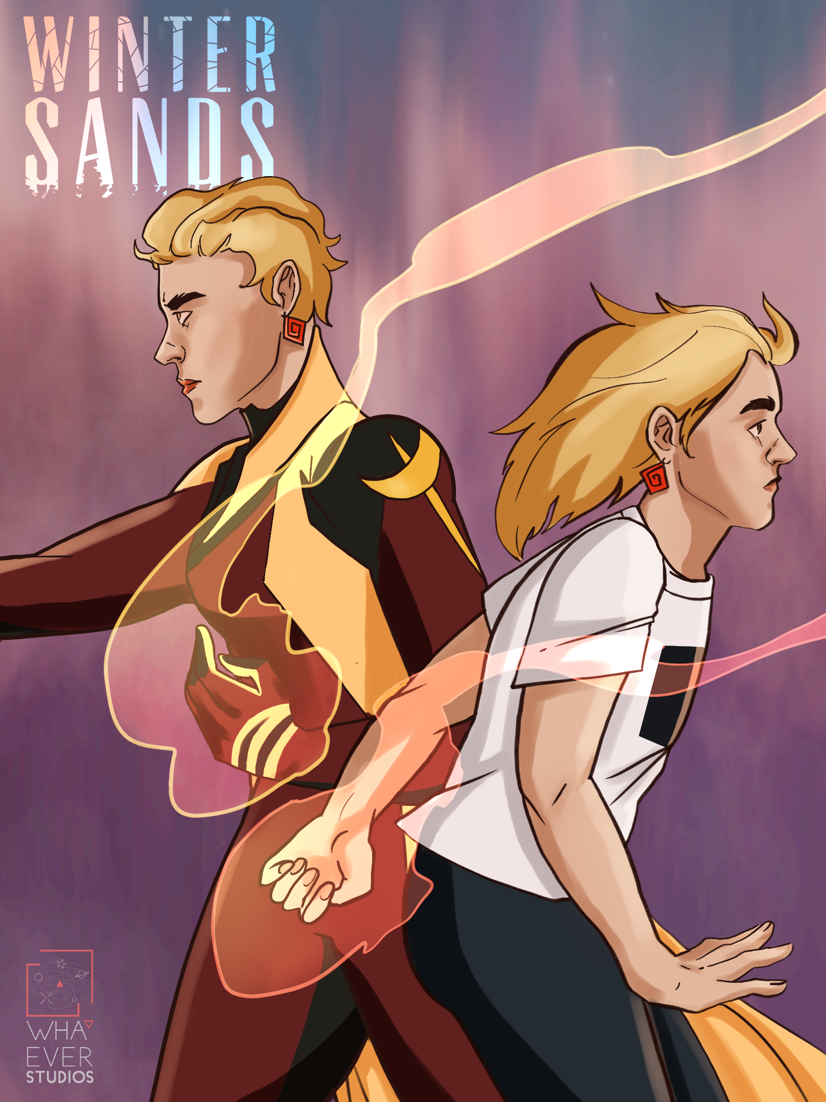
I literally matured with Agatha
I’ve wanted to be a writer since I was a kid, but I never thought I’d sit down to write a choose-your-adventure story, which a visual novel essentially is. Some of the plot and characters that made it into the game had been a novel called The Keepers of the Elements that I was writing at 11. It covered the bit of the story that we’ve left out of the game: how the Keepers found themselves in another world.
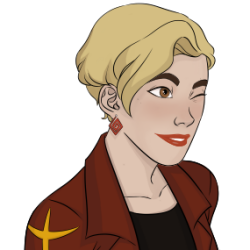 |
The original story also featured J.R.R. Tolkien, a dragon for each of the kids, talking rings, a gate into another world through the school gym, and teenage drama! What a treat, right? |
Then I discovered the W.I.T.C.H. comic books, where teenage girls wielded elements in a parallel dimension. Gave me a proper Darth Vader ‘NOOOOOOOOOOO!’ moment. What’s the point of anything, if adults come up with everything first?
Nothing, though, is new under the sun, and it doesn’t sound so bad once you’ve grown up yourself. Successful stories about magic kids and elements (read Avatar: TLA) no longer stop me. I still brood when I find out that I’ve copied something by accident (as in 2019, when I discovered a cover for one of the Captain Marvel comics – is Agatha her twin?), but that’s just good connection with the Universe, and all I can do is not steal anything deliberately.
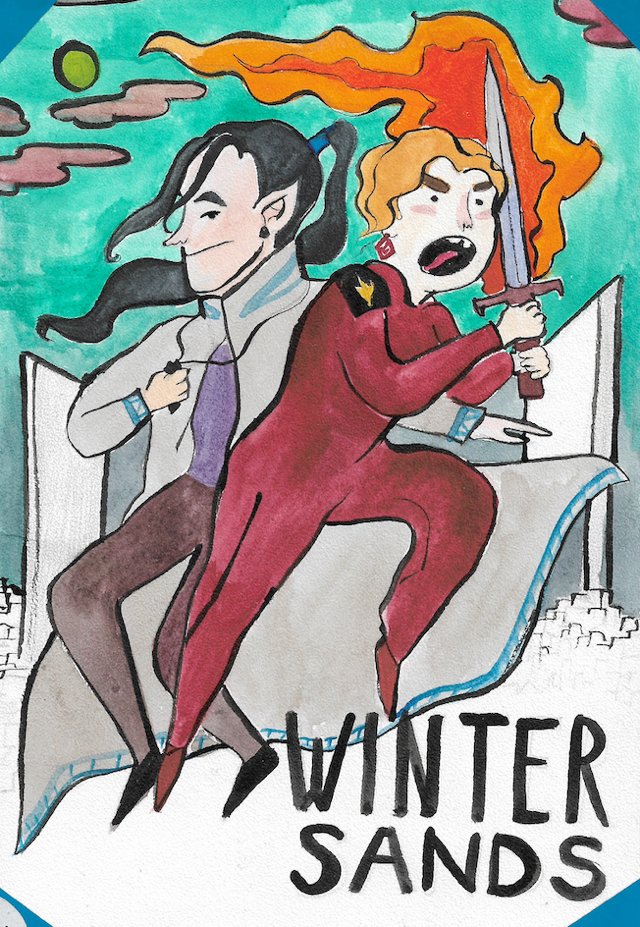
And I can still have some fun adventure time borrowing!
So, the idea just lay there for a while. Then, in 2015, I was playing Starfighter:Eclipse, a visual novel based on the Starfighter web-comic (LGBTQ+, 18+), when had an idea. Why not take Agatha & Co. and throw them into a visual novel?
THE ROAD LESS TRAVELED
Turns out, it isn’t easy to spin several stories off the one that’s been sitting in your mind for a very long time. Then, there’s fear that the newly invented alternatives won’t hold a candle to the one true story. And when I try to imagine the entire game with all the sub-plots and alternate routes branching out of it, I always get overwhelmed. How do others survive this ordeal? How does one come up with a neat game map?
I had a lot to learn, and I learned through trial, error, and quotes from amazing people.
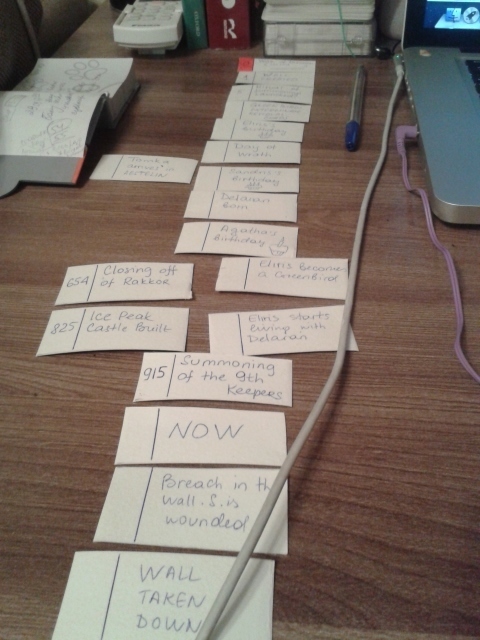
Figuring out the timeline of my own world: elves with their long lives ruin everything
There’s the thing: on the one hand, we need a detailed outline of everything that’s going to happen, so as not to leave any leads hanging and deliver on all the promises. On the other, for me, text is only alive when it’s more or less spontaneous and when writing is a discovery. Once an outline is there, I often feel like I can no longer deviate from it and write freely.
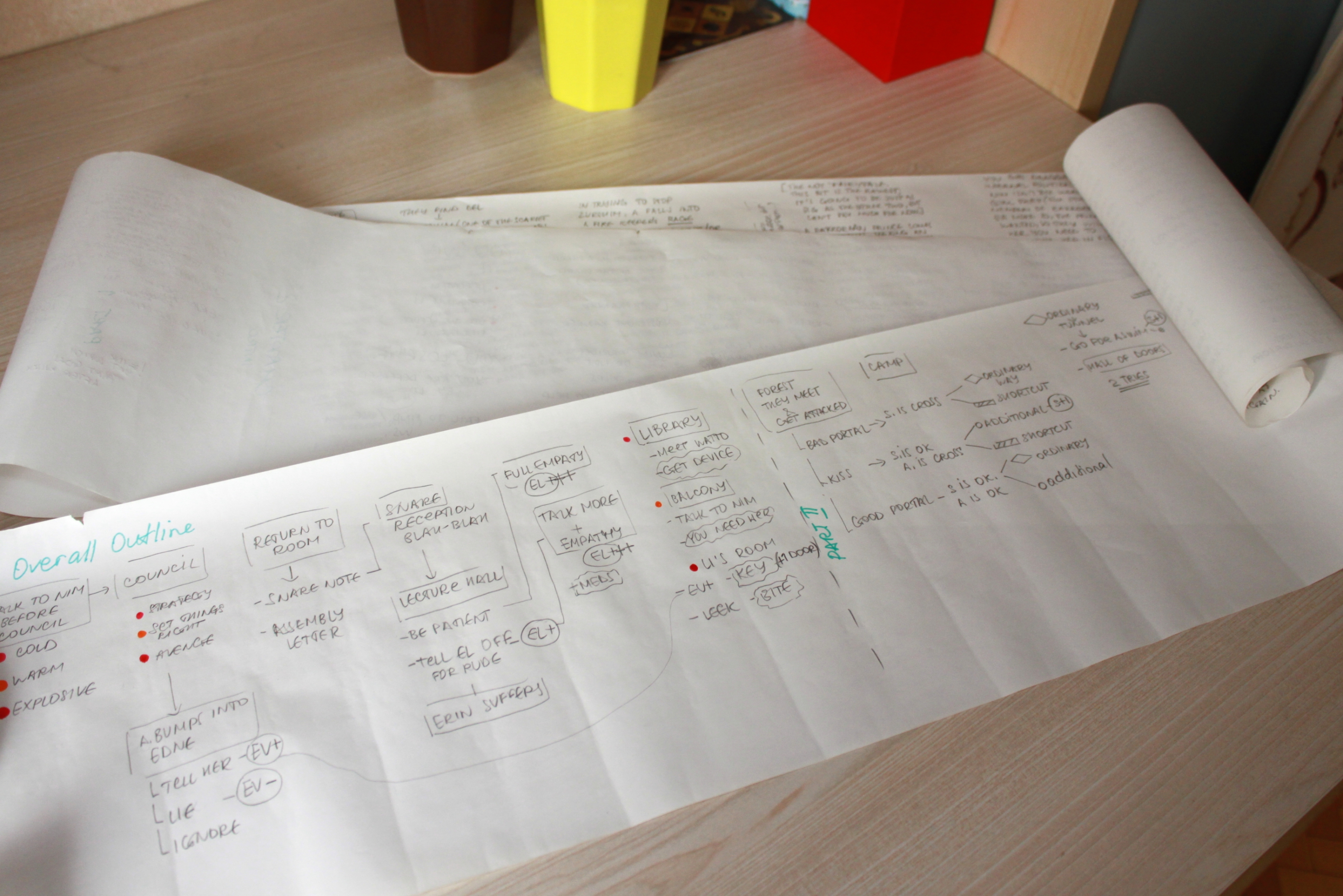
Fax machines may be a thing of the past, but rolls of fax paper aren’t! (kudos to trickster.kaja, the keeper of the scroll)
This constipated state – Blank Paperitus – exists only in my head, of course: after all, I’m not limited by any budget or client, or anyone’s expectations (we ditched the idea of crowdfunding because we didn’t want to feel the pressure from the kind people who gave us their money). And the good news is that there’s a way out of it! It is to remember that there is no one correct way to write a good script. Everything is permitted. As a wise man said:
“Nobody really knows anything, so do your own thing, you’d be happier.” (с) Taika Waititi on Jojo Rabbit
Here’s what ‘my own thing’ looks like:
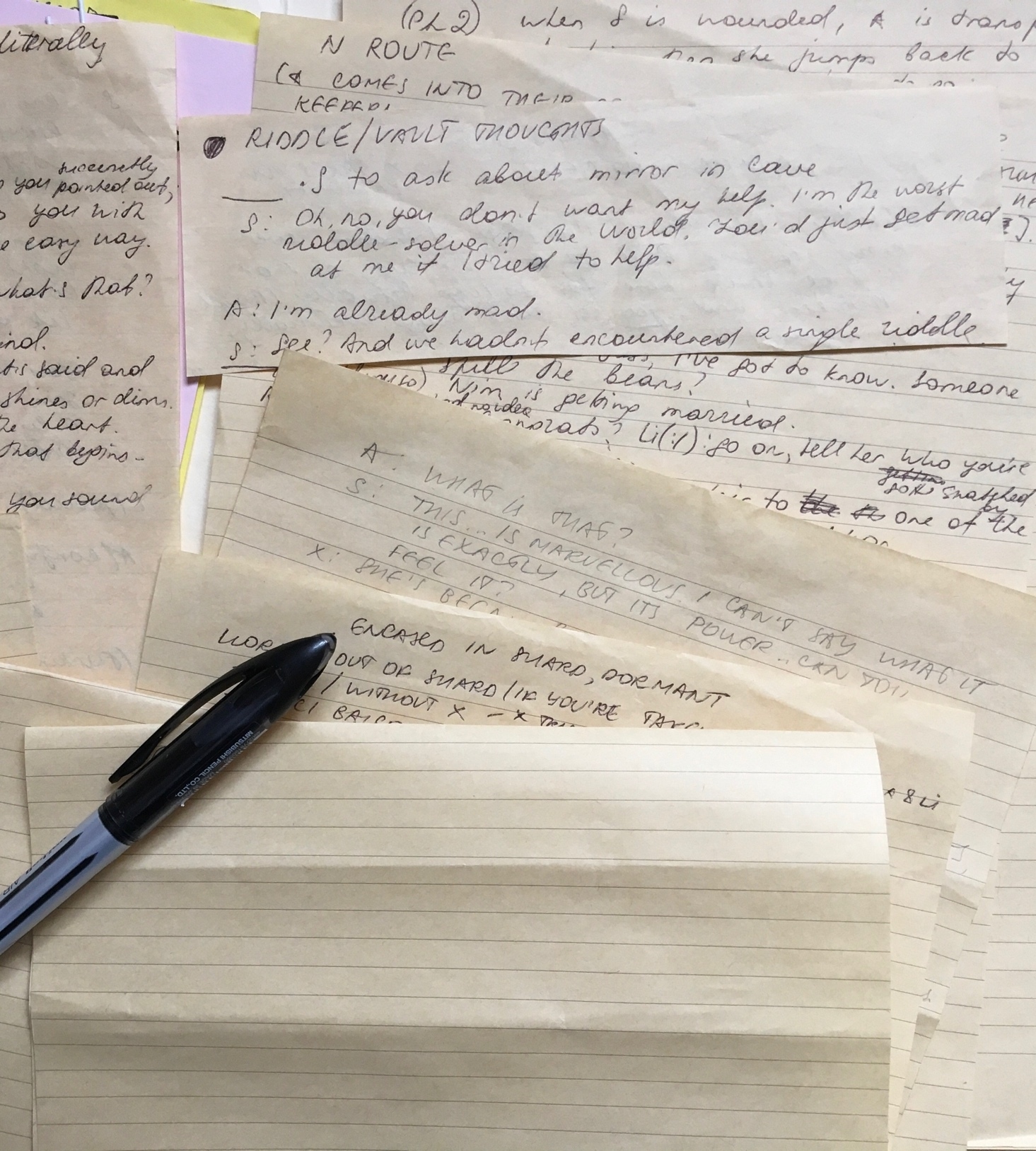
A loose leaf notepad is perfect for writing separate scenes when riding the tube
These bits and scraps are so informal that they give me the feeling of freedom to change anything. Once the text is typed into its .doc file, it seems rather solemn and final, though it is, of course, edited and amended at least a bazillion times before it is pasted into the code.
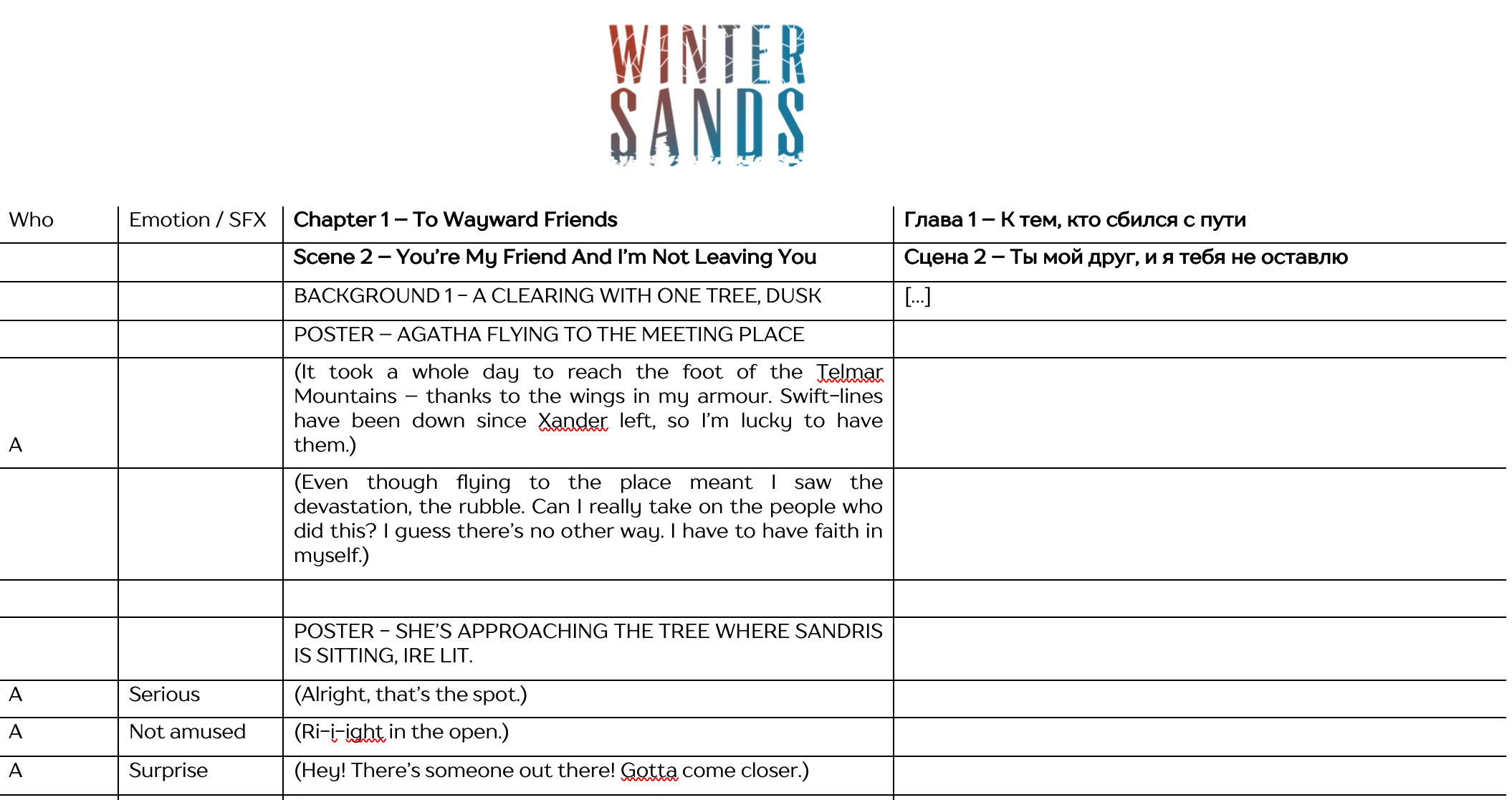
A sneak peek into our script!
Yep, my process isn’t quick, and I’m often struck by insecurity. Was I crazy to decide not to plot the details out? Am I going in the right direction? Thankfully, there’s a cure for that condition as well! When I get stuck like that, Neil Gaiman’s advice in his essay Art Matters comes to the rescue: if you’re not sure you can do something, pretend that you’re someone who can. Simple, right? If I’m someone who’s a confident scriptwriter, I have nothing to worry about while writing the script!
That leaves me with just three tasks: (1) to give each character their screen time, (2) to make sure that each character’s personality shines through their lines, and (3) to do this using as few expressions and locations as possible, because I don’t want our artist to die, just yet or at all.
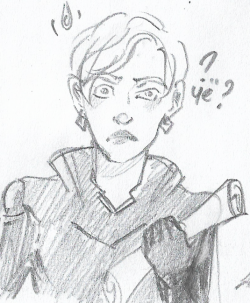
The face that says just how easy that is
Moreover, the inspirations help a great deal! For me, it’s mostly works that re-invent their genre, form or style. Something you discover and think, wait, you could do that? To name just a few of my faves:
- Theatre: Angels in America by the National Theatre, Emma Rice’s Midsummer Night’s Dream at The Globe, Hamilton;
- Comics: Sandman for stunning work on myths, ODY-C for being so mind-blowing text-wise, Sunstone for a surprisingly delicate and heart-warming approach to a kinky topic;
- Games: Dream Daddy for stellar dialogues, DBH for being so realistic in terms of characters’ choices, Mass Effect 1-3 for the great concepts for different races and their social order;
- Wisdom from other writers: Paris Review Interviews and Writers on Comics Scriptwriting.
LOST IN TRANSLATION & EDITING
Writing is editing. A common adage, and I fully subscribe to it! One day, we’re going to find actual editors, but so far, it’s just me and trickster.kaja reading and re-reading the script to make sure that it sounds natural.
How do we do that? I might be a qualified lawyer, but I work as a translator and I think I’ve cracked this code. Listen to this – proofreading aloud is it. Aloud, you go slower and pay attention to the details and the whole, you notice typos and quirky grammar, sentences that sound dead or too long, and, finally, you see if the dialogues are logical (unless you want to drop an innuendo). I sound like I’m summoning demons when I do this, and it takes a lot of time, but it’s fun, if the script is fun!
 |
Russian Internet users are notorious for their reviews that go ‘Add Russian!’ – but we’re having none of that with WINTERSANDS! |
And I do genuinely think it’s fun – at least, writing the English version is! What brings me suffering is adapting it into Russian, even though we’re all based in Moscow. Why? I guess I don’t consume enough Russian content to know the fun new words and expressions that don’t sound corny or outdated. I’m not a native speaker of English, so there’s a distance between me and the language that makes it more amusing to tinker with it. I probably make loads of mistakes, but my best is all I can offer in any language, anyway!
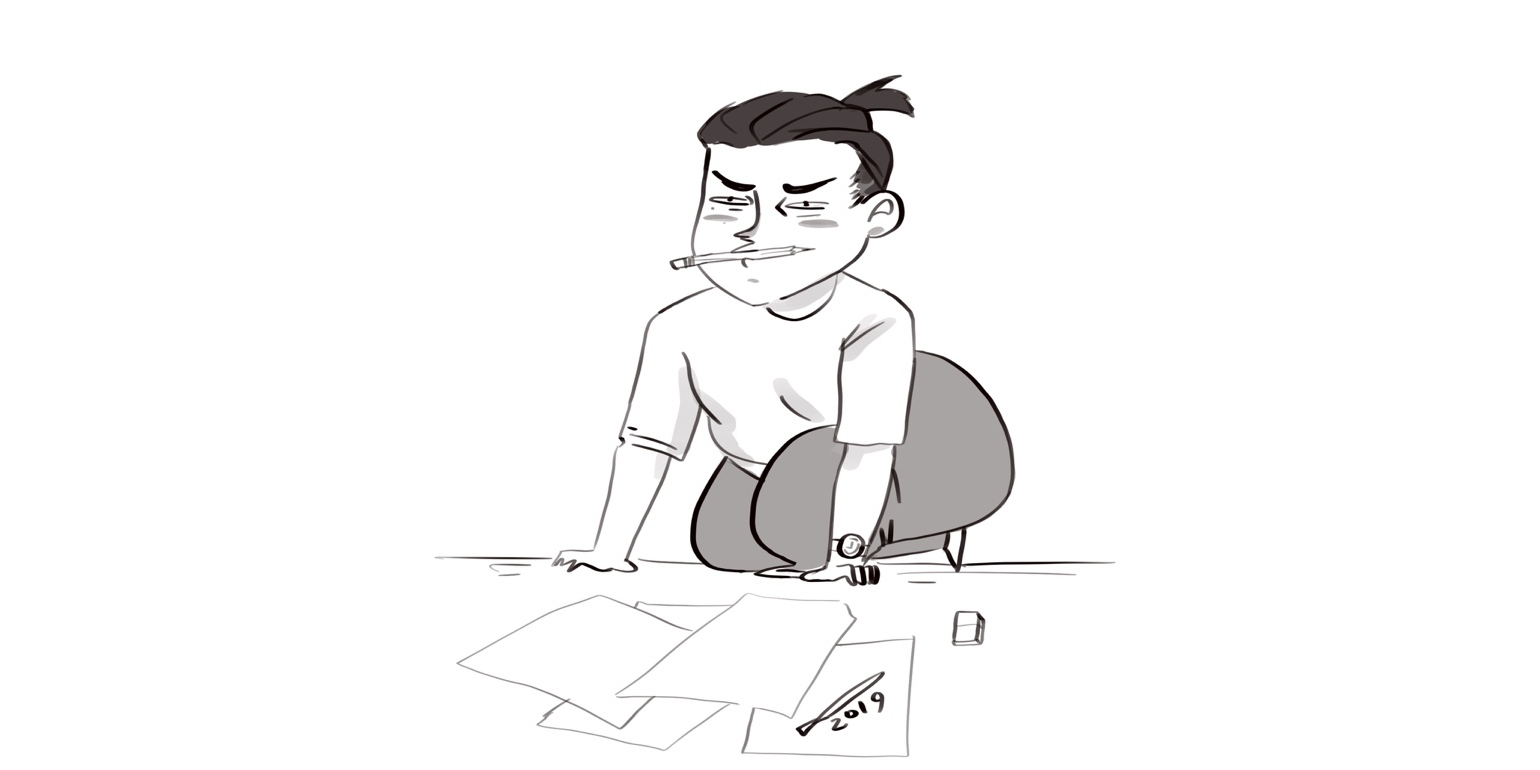
This script isn’t going to write itself
Even with the small epiphanies here and there, the learning never stops. We were recently awarded a prize for our narrative in WS and we’ll get a detailed review and advice! I’m looking forward to that, while I sit down to write what comes next on the game. I buckle up, because it is going to be huge – huge! – and I’ll do my best to make it fun for you.
And while I do that, brace for next week and our struggles with design!
Get WINTERSANDS
WINTERSANDS
Take charge of your life and save the magic world from ruin as the Keeper of Fire
| Status | In development |
| Author | trickster-kaja |
| Genre | Visual Novel, Adventure |
| Tags | Coming Of Age, Fantasy, Female Protagonist, Meaningful Choices, Multiple Endings, Romance |
| Languages | English, Russian |
More posts
- WINTERSANDS (extended demo)Jul 31, 2021
- #wsinktober 2020: Sandris PackApr 02, 2021
- #wsinktober 2020: Eliris PackMar 19, 2021
- #wsinktober 2020: Nimeire PackMar 12, 2021
- #wsinktober 2020: Never Too Late for Art or Spoilers!Mar 05, 2021
- WINTERSANDS CHRISTMAS UPDATE - AND A MERRY!Dec 25, 2020
- BONUS! THE ELEMENT OF LOVEAug 14, 2020
- WINTERSANDS: SPRITESJul 31, 2020
- WINTERSANDS: CHARACTERSJul 17, 2020
- WINTERSANDS: BACKGROUNDSJul 03, 2020

Leave a comment
Log in with itch.io to leave a comment.